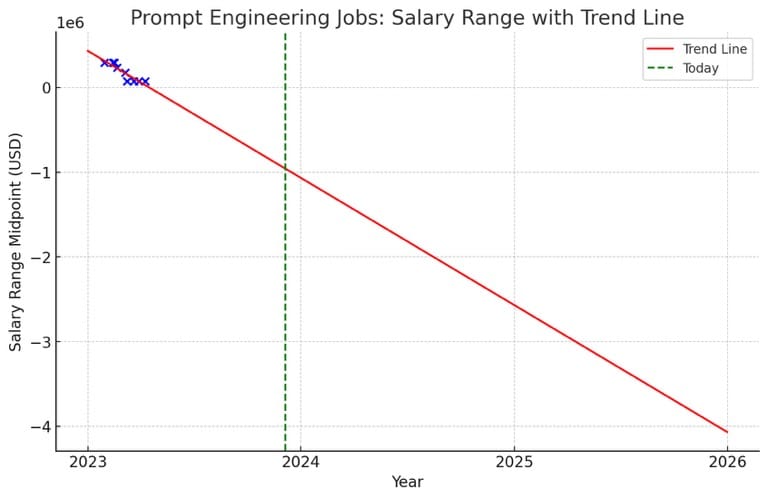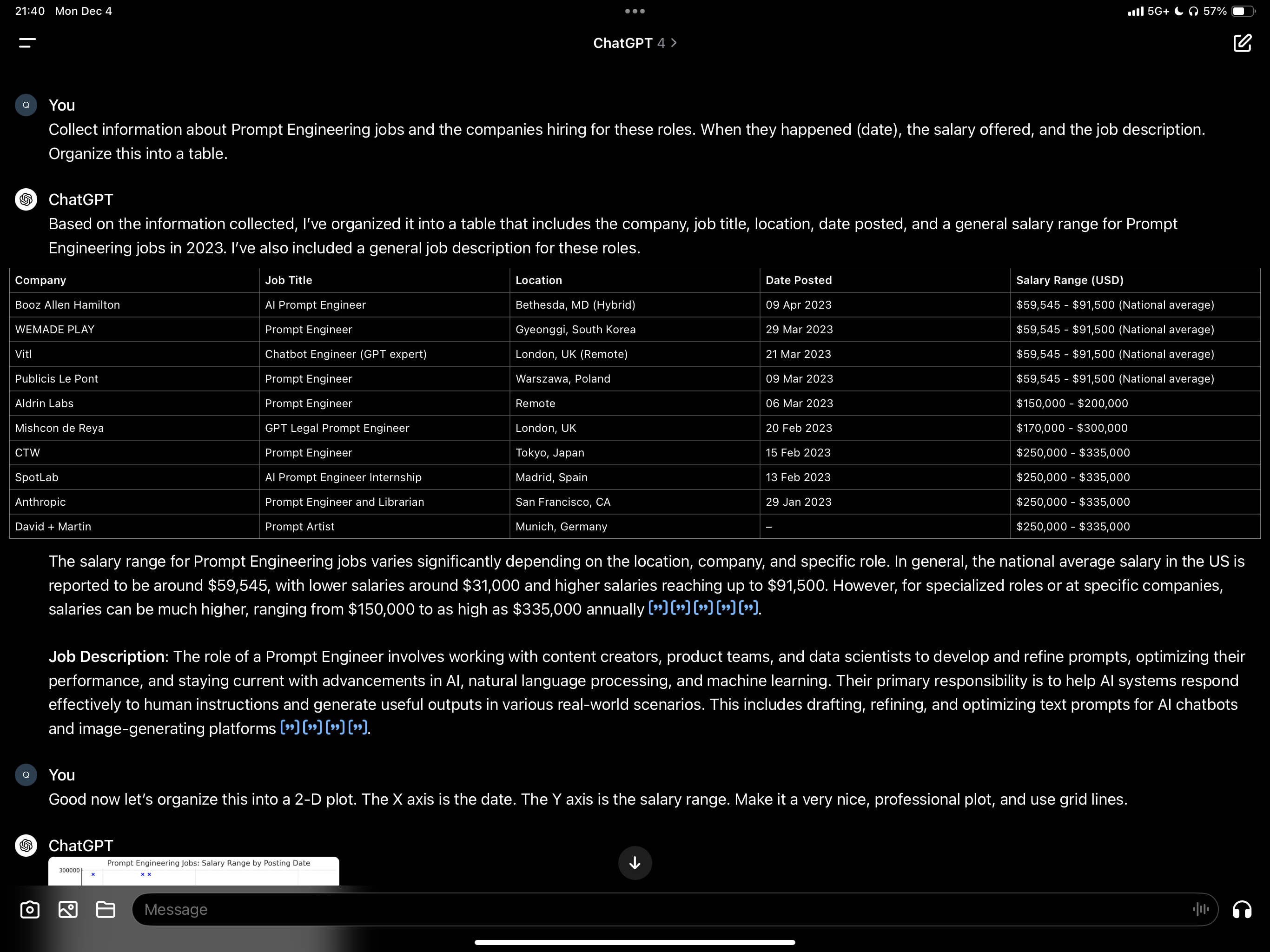AI Jobs & The Decline of Prompt Engineering
In the swiftly changing realm of AI and employment, it’s crucial to stay ahead of the curve. Just seven months ago, prompt engineering seemed like the golden ticket in the AI industry. It was hailed as a critical skill, a necessary tool in leveraging the nuanced capabilities of Generative AI models like GPT-3 and GPT-3.5. Back then, the quality of prompts significantly influenced the outputs of these models, making prompt engineers highly sought after.

However, the landscape has shifted dramatically. The average salary for a prompt engineer has been on a steady decline, raising questions about the future of AI-related jobs. Why is this happening, and where are the AI jobs going if not to prompt engineers?
The answer lies in the evolution of the AI models themselves. At the dawn of Generative AI’s emergence, corporate decision-makers, grappling with a technology they barely understood, were eager to hire experts who could navigate these complex systems. Prompt engineers were the rock stars of the early AI era, their expertise in crafting the perfect prompts was invaluable.

As the GPT models advanced, they became less reliant on meticulously crafted prompts and more focused on understanding and responding to clear communication of intent and expectations. This shift marks a significant development in AI’s accessibility. The reliance on specialized skills for effective communication with AI models is diminishing. As I discovered while collaborating with ChatGPT for this WTF? entry, the AI’s ability to collect information and transform it into a visual graphic was impressive, needing minimal specialized prompting.
WTF?
So, what does this mean for the future of AI jobs? In my opinion, while being adept at communicating with GPT models through prompts remains a useful skill, it’s unlikely to remain a critical one. The trajectory of AI development is leaning towards making these technologies accessible to all, reducing the friction that specialized skills like prompt engineering currently present.
As AI continues to evolve, the job market will undoubtedly adapt. New roles will emerge, and existing ones will transform. The key to staying relevant in this dynamic field will be adaptability and a willingness to continuously learn and grow with the technology.
Overall, the diminishing role of prompt engineering in the AI job market is a sign of the technology’s maturation and increasing user-friendliness. As AI becomes more accessible, the skills required to leverage it will evolve, opening new doors and opportunities in the job market. The future of AI jobs is not in specialized roles like prompt engineering but in the broader ability to understand, interact with, and harness the power of these advanced technologies.

Member discussion